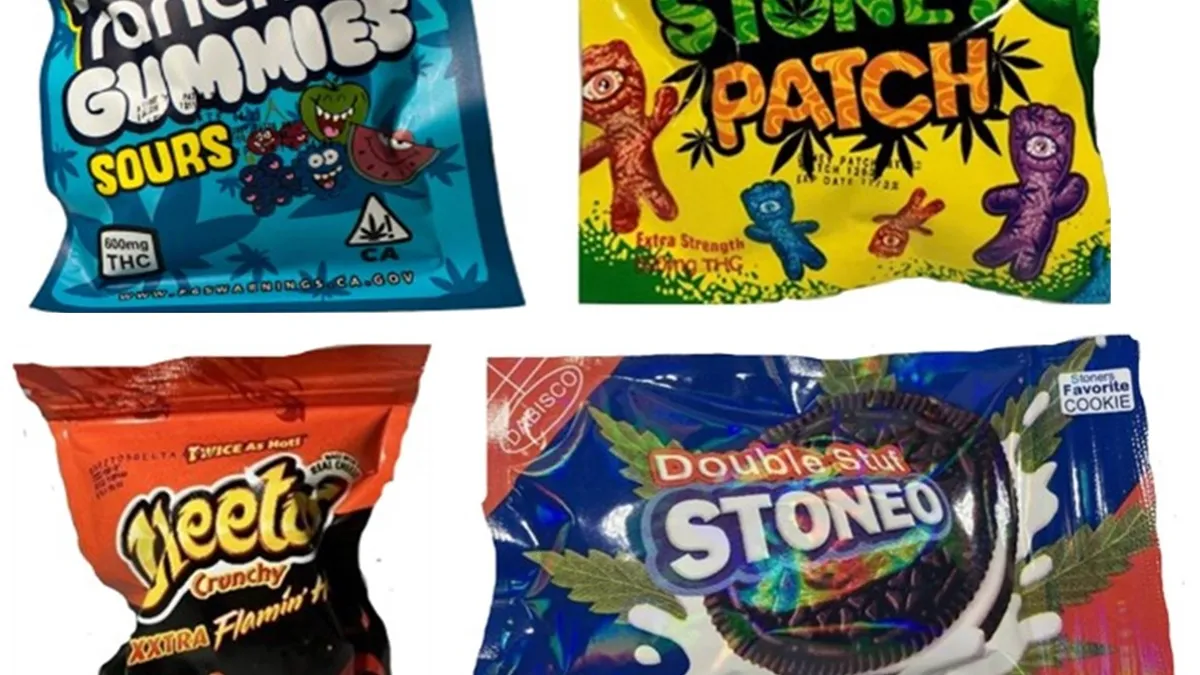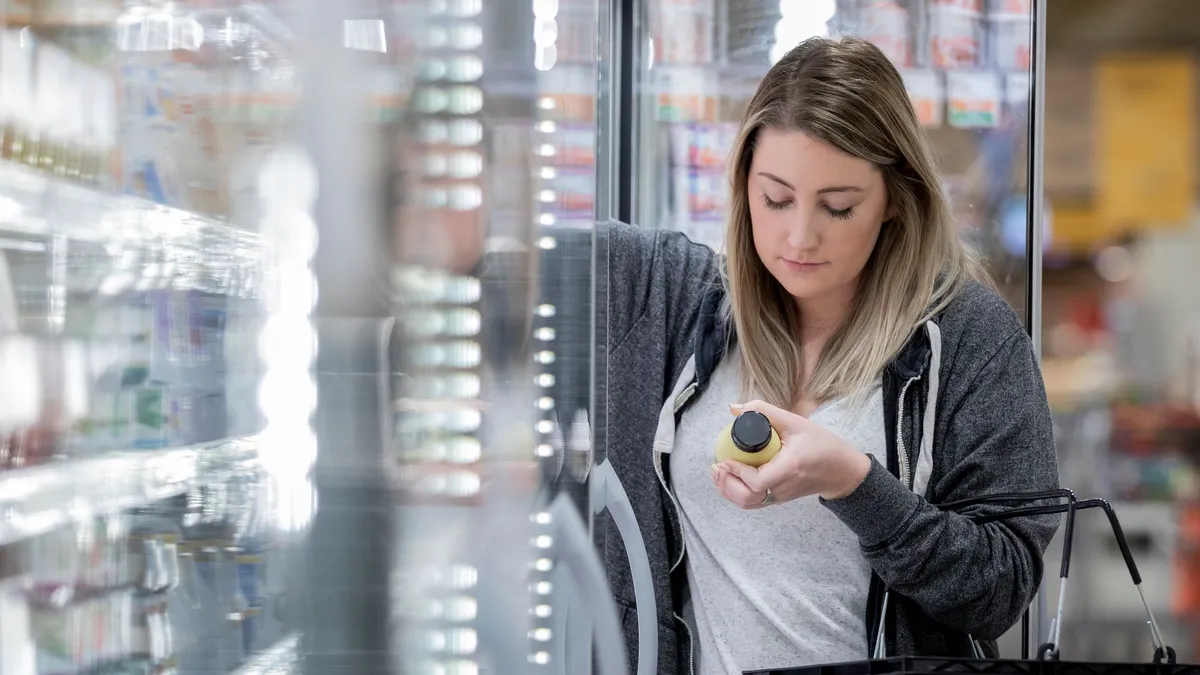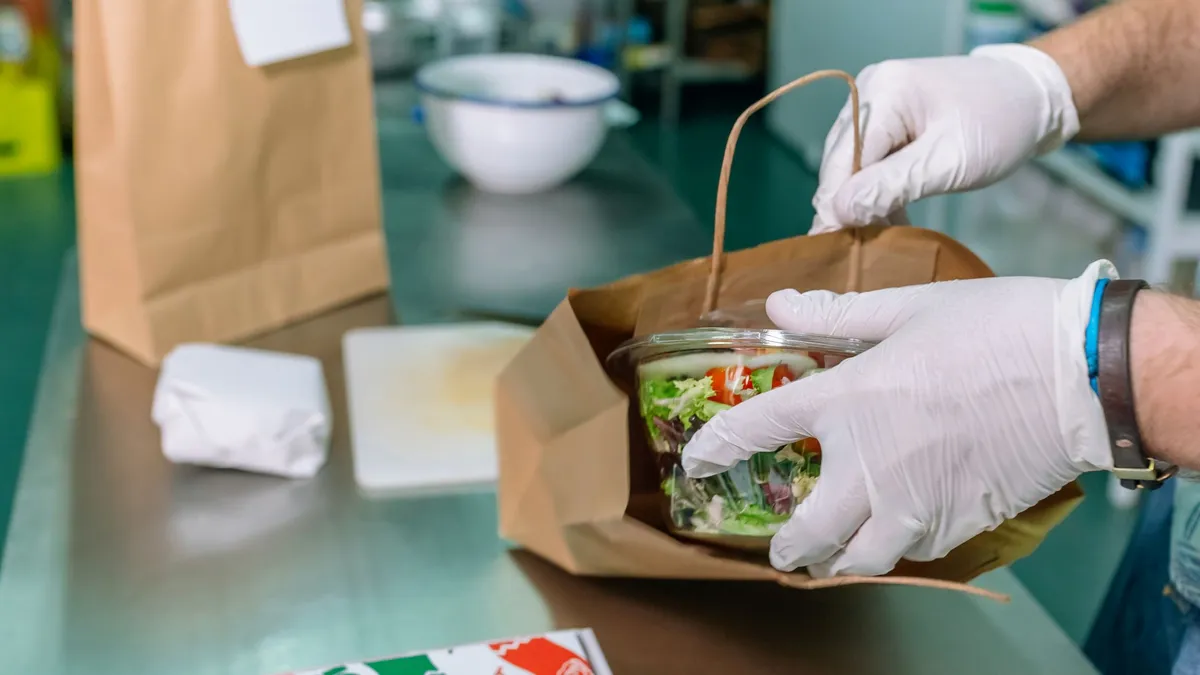Dive Brief:
- Federal regulators and state lawmakers are taking new actions to restrict the packaging designs allowed for cannabis products, with an aim of minimizing risks to children.
- The Federal Trade Commission and the U.S. Food and Drug Administration on Wednesday jointly announced cease and desist letters they have sent to six companies marketing edible products with Delta-8 tetrahydrocannabinol, a component of cannabis, in packaging that regulators said “is almost identical to many snacks and candy children eat.” They demand that companies stop marketing these products in a way that imitates conventional foods.
- The move comes as more states, including Missouri this month, enact their own rules restricting colors and other aspects of packaging design, also with the intent of reducing the potential appeal to children. New rules will disallow images of animals, fruits or cartoons, among other parameters.
Dive Insight:
Nearly half of U.S. states have legalized cannabis for recreational purposes, with New York, Maryland and Missouri the most recent additions. While requirements for child-resistant seals and closures are universal, analysis by the Network for Public Health Law shows a patchwork of state-by-state regulations about packaging parameters.
Some states require that packaging be “plain” or opaque, and some require that a poison control number be printed on it. Other language prohibits any resemblance to commercially available food, words or images that may be attractive to children, or simply appealing to children.
States continue to develop those regulations. For example, California’s legislature this year is considering a bill with provisions on cannabis labeling and advertising that aims to **forbid avoid** any packaging considered “attractive to children,” including packaging that could be “easily confused” with food products typically marketed to children. The California Cannabis Manufacturers Association has opposed the bill, saying it “will increase cost burdens on the licensed cannabis industry while empowering an unlicensed market that flagrantly markets to children.”
In Missouri, which became the 21st state to approve recreational cannabis in its November 2022 election and where dispensaries began selling it in February, new rules affecting packaging come into force July 30. The rules prescribe that packaging must use “limited colors,” namely a primary color and up to two logos or symbols or a different color or colors. The widest part of a logo cannot be wider than than the word “marijuana” displayed on the packaging.
The FTC and FDA letters are targeting a group of marketers whose products closely mimic popular snack and candy brands, including Cheetos, Oreo, Jolly Rancher and Sour Patch Kids products. The six companies that received the letters are based in California, Virginia, North Carolina, New Mexico, New Jersey and Missouri. “Marketing edible THC products that can be easily mistaken by children for regular foods is reckless and illegal,” said Samuel Levine, director of the FTC’s Bureau of Consumer Protection, in Wednesday’s release.
“Your product sector may be new, but you must conduct your business within established laws designed to protect the public from deceptive marketing practices and adulterated foods,” another FTC official wrote in a blog.
Candy company Ferrara, one of numerous major candy makers to sue THC product sellers in recent years, last year won a lawsuit against a cannabis company that a judge ruled infringed on its Nerds trademark.















